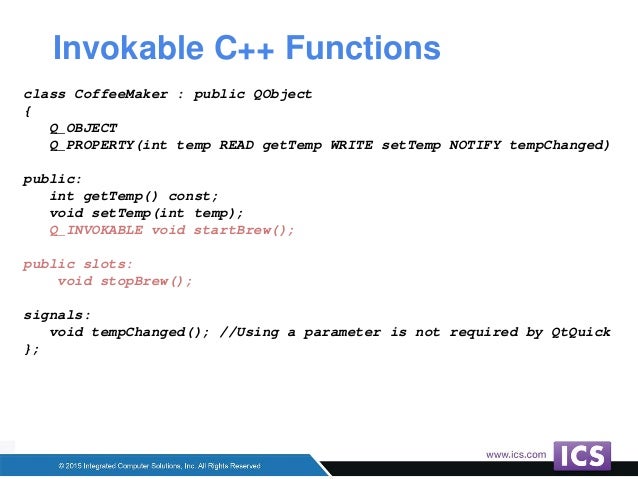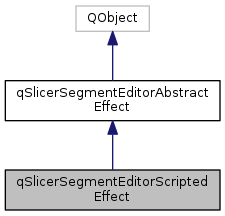#include
Inheritance diagram for sf::SFAuthenticationManager:
Public Slots |
| void | onAppStart () |
Signals |
| void | SFOAuthFlowSuccess (SFOAuthInfo *info) |
| void | SFOAuthFlowFailure (SFOAuthInfo *info) |
| void | SFOAuthFlowCanceled (SFOAuthInfo *info) |
| void | SFUserLoggedOut () |
| void | SFLoginHostChanged () |
Public Member Functions |
| Q_INVOKABLE void | login () |
| Q_INVOKABLE void | logout () |
| Q_INVOKABLE bool | isAuthenticating () |
| Q_INVOKABLE void | cancelAuthentication () |
| QString | loginHost () const |
| const SFIdentityData * | getIdData () const |
| const SFOAuthCredentials * | getCredentials () const |
Static Public Member Functions |
| static SFAuthenticationManager * | instance () |
| static void | setScopes (QList< QString > newScopes) |
Static Protected Attributes |
| static SFAuthenticationManager * | sharedInstance |
Detailed Description
A singleton class that manages the oAuth 2.0 user agent/refresh flow.
This is a singleton class and its instance can be accessed by by SFAuthenticationManager::instance()
Initialization
Before using this class to start the authentication process, the application code needs to specify the required information to connect to salesforce.com:
- consumer key: set this value in your
applicationui class by defining the SFRemoteAccessConsumerKey variable - redirect url: set this value in your
applicationui class by defining the SFRemoteAccessConsumerKey variable - scopes: optionally set the scopes you want the access token to be associated with. Set its value by calling
SFAuthenticationManager::setScopes(QList newScopes);
Note
The consumer key, redirect url and scopes information is persisted on the device. If you decide to reconfigured these information, the change will take effect only after the app performed a logout or the app is deleted and re-installed. See SFAccountManager for more details
Usage
To use this class, connect to the desired signals and invoke the desired functions
SFAuthenticationManager* authManager = SFAuthenticationManager::instance();
connect(authManager, SIGNAL(SFOAuthFlowSuccess(SFOAuthInfo*)), this, SLOT(onSFOAuthFlowSuccess(SFOAuthInfo*)), Qt::UniqueConnection);
In order for the SDK to handle the authentication process. It uses a few QML assets to construct the UI needed during authentication They can be found in the assets/salesforce folder
- SFSettings.qml: a screen for user to specify which environment to connect the application to. The application developer is responsible for presenting this screen if a setting screen is required in the application. The SDK will do the necessary clean up tasks and emit a LoginHostChanged signal. The application is responsible for handling this signal (e.g. trigger login again)
- SFOAuthSheet.qml: a sheet that holds the web view for authentication. It is presented and dismissed by SFAuthenticationManager as part of the login process
- SFPasscodeCreation.qml: a sheet that lets user set up device password after authentication. It is presented and dismissed by SFAuthenticationManager
- SFLockScreen.qml: a sheet that locks the screen when the app is inactive for a period of time. It is presented and dismissed by SFAuthenticationManager
- See Also
- SFAuthenticationManager, SFAbstractApplicationUI See Authenticating Remote Access Application OAuth for more details. This SDK supports the oAuth 2.0 user agent flow and refresh token flow.
Definition at line 91 of file SFAuthenticationManager.h.
Member Function Documentation
| Q_INVOKABLE void sf::SFAuthenticationManager::cancelAuthentication | ( | ) |
Cancels in progress authentication (stops web view from loading, or aborts refresh token connection) Does not clear existing account data.
| const SFOAuthCredentials* sf::SFAuthenticationManager::getCredentials | ( | ) | const |
| const SFIdentityData* sf::SFAuthenticationManager::getIdData | ( | ) | const |
- Returns
- the current logged in user's identity data
| static SFAuthenticationManager* sf::SFAuthenticationManager::instance | ( | ) |
| static |
| Q_INVOKABLE bool sf::SFAuthenticationManager::isAuthenticating | ( | ) |
- Returns
- boolean value indicating whether there is any authentication in progress
| Q_INVOKABLE void sf::SFAuthenticationManager::login | ( | ) |
Starts the authentication process and emits either the success or failure signal This function will trigger the user-agent flow if the refresh token is not available otherwise the refresh token flow will be triggered.
| QString sf::SFAuthenticationManager::loginHost | ( | ) | const |
| Q_INVOKABLE void sf::SFAuthenticationManager::logout | ( | ) |
Q_invokable Vs Public Slot
Cancels any authentication in progress and clears stored account data
| void sf::SFAuthenticationManager::onAppStart | ( | ) |
| slot |
This slot is connected to the application's fullscreen signal to automatically display either the login screen or lock screen.
| static void sf::SFAuthenticationManager::setScopes | ( | QList< QString > | newScopes | ) |
| static |
| void sf::SFAuthenticationManager::SFLoginHostChanged | ( | ) |
| signal |
Emitted if user went into settings and changed the login host
| void sf::SFAuthenticationManager::SFOAuthFlowCanceled | ( | SFOAuthInfo * | info | ) |
| signal |
Parameters| info | a pointer to SFOAuthInfo indicating the type of the oAuth flow (user agent or refresh token) Emitted by cancelAuthentication() |
| void sf::SFAuthenticationManager::SFOAuthFlowFailure | ( | SFOAuthInfo * | info | ) |
| signal |
ParametersQ Invocable Public Slot Poker
| info | a pointer to SFOAuthInfo indicating the type of the oAuth flow (user agent or refresh token) Emitted by login() if failed |
| void sf::SFAuthenticationManager::SFOAuthFlowSuccess | ( | SFOAuthInfo * | info | ) |
| signal |
Parameters| info | a pointer to SFOAuthInfo indicating the type of the oAuth flow (user agent or refresh token) Emitted by login() if succeeded. Not recommended to use with queued connection. If you do you are responsible to make sure the pointer is still valid when the signal is processed. |
| void sf::SFAuthenticationManager::SFUserLoggedOut | ( | ) |
| signal |
Q Invocable Public Slot Machine
Member Data Documentation
| SFAuthenticationManager* sf::SFAuthenticationManager::sharedInstance |
| staticprotected |
Definition at line 169 of file SFAuthenticationManager.h.





